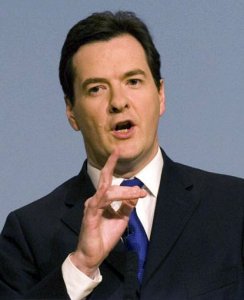The Bank of England has advised banks to bolster their finances by limiting the amount of bonuses this year and Chancellor George Osborne has given a warning that this advice needs to be heeded. With a credit crisis looming ahead, the BoE feels that money would be put to better use building a stronger capital position.
Mr. Osborne feels that he and the BoE have given plenty of advance notice and that banks need to take a serious look at end of year bonuses or face consequences. Although it wasn’t immediately clear what those consequences would be, there are definite plans on the table to begin transforming the public sector by early in 2013. He is committed to bargaining of wages locally so that pay within the public sector will adversely affect local markets.
It is reported that unions are not amenable to local wage bargaining but that the proposal to do so would be a way to stimulate the economy in the private sector in hard hit regions of the UK. These areas have public sector jobs which are comparable to those in the private sector, but the public sector is paid at a significantly higher pay rate.
By bargaining locally it is felt that there will be better equality of wages in these regions which would in turn stimulate financial growth. It is also felt that local wage bargaining for the public sector will prevent crowding out of private enterprises since the public sector traditionally outcompetes them in terms of wages and benefits.
The forecast date for reviewing local basic pay rates is 17 July of 2012 which the Chancellor feels would allow for plenty of time to prepare for the 2013-14 FY. However, there are groups of public sector workers which would be excluded from these changes including the armed forces, dentists and doctors. More information will be revealed on Budget Day which the Chancellor has set for 21 March, 2012.





